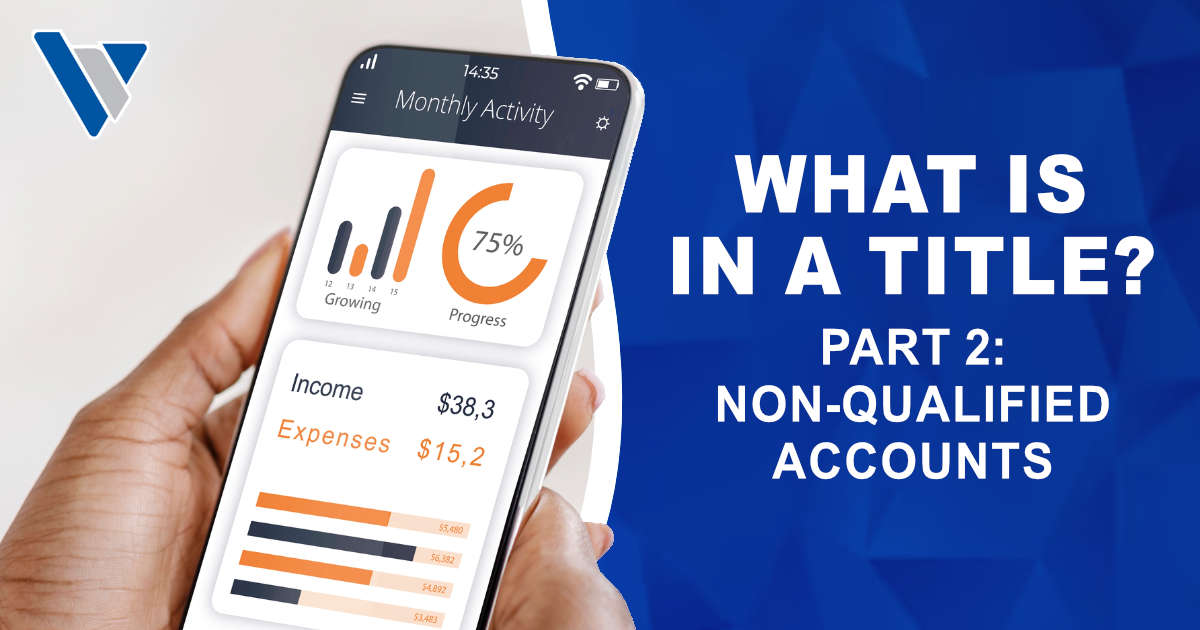In my last article, I discussed the importance of proper titles in regards to qualified accounts,...

Over the past several months, we have witnessed a 42% increase in the 10 year U.S. Treasury Note. From the end of May to August 14, the yield has gone from 1.9% to 2.7%. Over that same time period, Pimco’s Total Return Bond Fund has dropped approximately 4.5%. That is a significant drop over a short period of time for the overall bond market (source for the above is Bloomberg Finance).
What is next? Will rates continue to rise or is this just a short-term increase only to see it drop back down? How will a rising interest rate market impact you? Over the next several weeks I will publish a series of articles on interest rates and bonds. This first article will focus on the basics. Next week I will address some strategies for investing in an environment of increasing interest rates, and then the third and final article of the series will focus on some investments that have historically performed better in a rising interest rate market relative to typical bonds.
First it is important to review why this is important. Generally speaking, there is an inverse relationship between interest rates and bond values. If rates continue to rise, there are two risks to your fixed income portfolio; loss in principal and a loss of purchasing power.
As I have written before, one of my biggest concerns is the amount of risk individual investors are accepting due to having a higher mix of stocks because fixed income investments have had poor yields. The Federal Reserve is almost forcing many investors to forgo bonds for stocks. This exchange does not come without additional risk, in many cases risk that hasn’t been factored into the decision making.
Regardless, to understand the impact of rising interest rates we need to understand duration. I don’t want to get too technical, but duration is important. Simply put, duration is the sensitivity of a fixed income investment’s price to a change in interest rates. Clients don’t need to know how to calculate duration but rather a basic understanding of the risk to your portfolio. At a very high level, the price of a bond with duration of 5 years would be expected to rise or fall 5% for every 1% change in market interest rates. Thus, if you have a value of $1,000, every 1% increase in market interest rates would drop your value by $50. If market rates increased from 2.5% to 5.5%, you should expect your value to drop 15% or to approximately $850 on the $1,000 bond.
The longer-term the bond, the higher the duration, which means your losses, should be expected to be higher. For example, a typical 30 year bond with a 18.5 duration should be expected to drop approximately 14% for every 1% increase in market rates. In the example above where market rates rose from 2.5% to 5.5%, you should expect your bond value to drop approximately 40%.
The impact of interest rates and duration mean different things if one is invested in bond funds versus individual bonds. I believe it is important in a rising interest rate environment to invest in individual bonds when possible as opposed to bond funds.
For example, if you buy a bond at par ($1,000) that pays a 4% yield and has a maturity of 5 years, you should expect $40 a year for those 5 years irrespective of what interest rates do. However, if interest rates increase you should expect the price of that bond to drop. That is important if you try to sell that bond in the open market. However, barring credit problems of the issuer of the bond, if you don’t sell it before maturity, you should expect $1,000 when it matures after 5 years. So the change in value of the bond between purchase and maturity are only paper changes. If you go in expecting to hold until maturity, you know what you are getting so the big issue is making sure you buy quality bonds and diversify.
Bond funds don’t work that way though. Most bond funds do not have a maturity. Their price is based on the supply and demand of that fund as opposed to interest rates moving. There is a high correlation between increasing interest rates and decreasing values, but you never know if you will get your purchase price back. You are at the mercy of many other investors out there. If they decide to sell in mass, your bond fund may drop greater than the duration expectation. As stated above, if buying individual bonds it is important to diversify. One of the advantages of bond funds is their diversification.
In summary for our basics, if you expect interest rates to rise you should lower the duration of your fixed income portfolio and if you are looking for income, you should consider individual bonds versus bond funds. Again it is important to diversify. We have three different bond desks helping us locate solid bonds and to help us diversify.